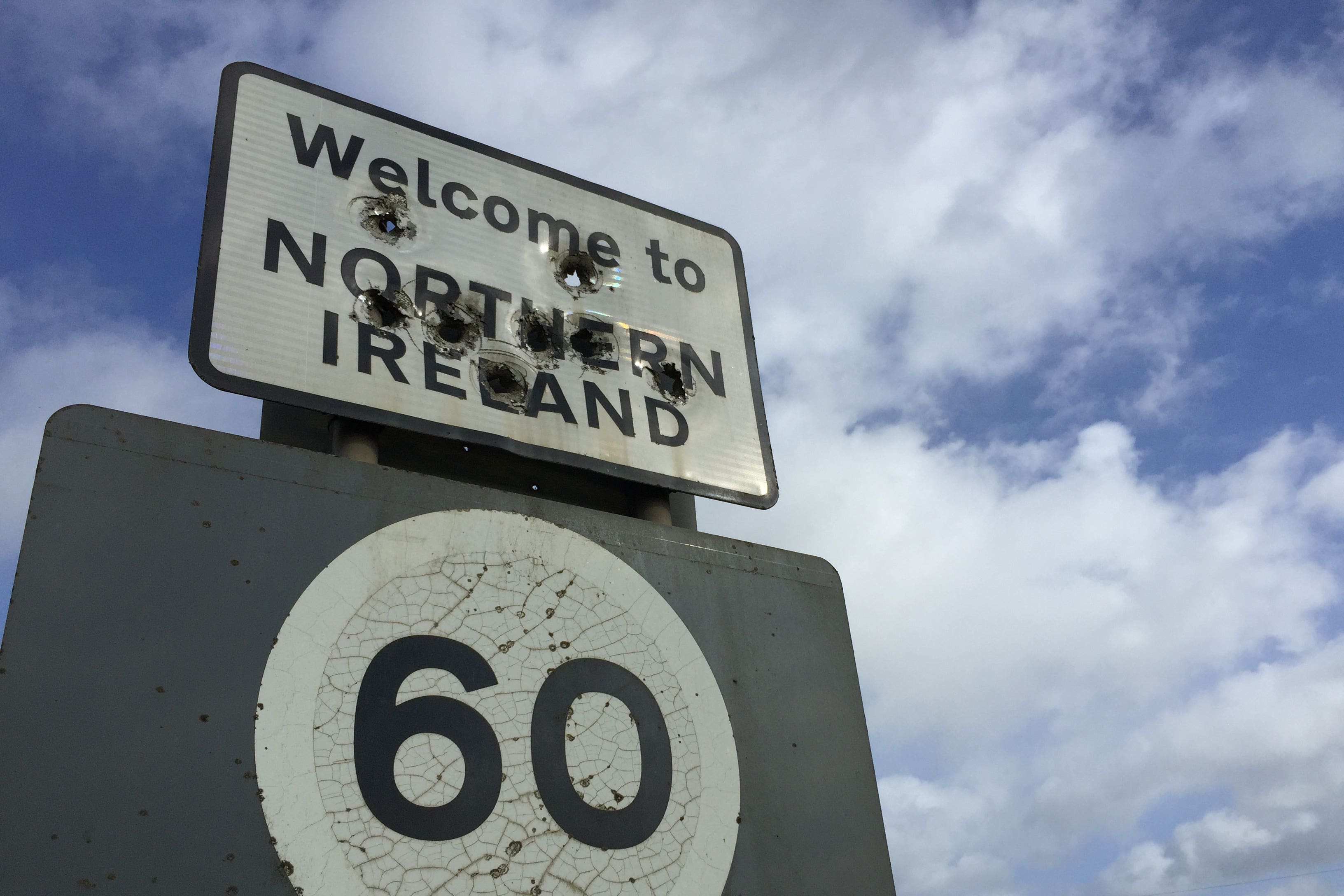Irish unity referendum question does not arise currently – Harris
Ireland’s premier said it was more important for the British and Irish governments to be supporting the powersharing institutions at Stormont.

Your support helps us to tell the story
From reproductive rights to climate change to Big Tech, The Independent is on the ground when the story is developing. Whether it's investigating the financials of Elon Musk's pro-Trump PAC or producing our latest documentary, 'The A Word', which shines a light on the American women fighting for reproductive rights, we know how important it is to parse out the facts from the messaging.
At such a critical moment in US history, we need reporters on the ground. Your donation allows us to keep sending journalists to speak to both sides of the story.
The Independent is trusted by Americans across the entire political spectrum. And unlike many other quality news outlets, we choose not to lock Americans out of our reporting and analysis with paywalls. We believe quality journalism should be available to everyone, paid for by those who can afford it.
Your support makes all the difference.The question of a referendum on Irish unity is not a priority and does not “arise currently”, Simon Harris has said.
Ireland’s premier said it was more important for the new UK Government to work with Ireland in supporting the powersharing institutions at Stormont.
Following the General Election, Sinn Fein emerged for the first time with the largest representation among Northern Ireland parties at Westminster.
The republican party’s president Mary Lou McDonald took the opportunity to urge new Prime Minister Sir Keir Starmer to “embrace the right of Irish self-determination and constitutional change toward Irish reunification”.
However, Sir Keir has previously stated that the issue of a united Ireland is not on his horizon.
Speaking on Sunday, new Northern Ireland Secretary Hilary Benn said he believed the prospect of a vote on Irish unity is “off into the distance”.
Taoiseach Mr Harris told Sky News’ Sunday Morning With Trevor Phillips show that it was no surprise that there were differing views on the constitutional question.
He said: “The fact that we have different views on the constitutional future of Northern Ireland is not earth shattering news.
“And actually it’s because we have differences in relation to the constitutional question that we must find practical ways of working together.
“The Good Friday Agreement allows us both have those legitimate, differing aspirations, and there’s a structure in place to address that.
“For me, though, the focus and priority isn’t on a referendum, the focus on priority has to be on delivery.”
Mr Harris added: “People in Northern Ireland, people in Ireland, people in Britain, I believe, want to see real delivery when it comes to things like public services, their economy, prosperity, the economy in terms of how it impacts on their family and their businesses.
“And we have an opportunity now that the (Stormont) institutions are back up and running and I think we have people now in key leadership positions in Northern Ireland, in Dublin and in London who are fully committed to that.”
Mr Harris was asked if the prospect of a unity referendum had moved further away following Labour’s election win.
What arises right now is a moment to reset Anglo-Irish relations after what was a very turbulent period of time
He said: “I just don’t think it arises currently.
“I think the most important thing here is as we have ministers back at their desks in Northern Ireland, and that they get on with the work, and that the British and Irish governments, as co-guarantors of the peace process, play our role in supporting that too.
“It’s absolutely appropriate to have legitimate constitutional aspiration, my party is called Fine Gael, the united Ireland Party.
“That’s my legitimate constitutional aspiration for the future of this island.
“It doesn’t arise today, though.
“What arises right now is a moment to reset Anglo-Irish relations after what was a very turbulent period of time, and I’m very excited about the opportunities that that presents.”
Speaking to the media in Belfast, Mr Benn said the criteria for a unity referendum in the Good Friday Agreement was very clear.
He said: “It is when the Secretary of State, whoever he or she is at that time, comes to the view that in the event that if a border poll was held, the people of Northern Ireland would vote for a united Ireland.
“Now, there is no evidence that that condition has been met.
“I said previously I am not going to set out further criteria because there is the one criteria. It speaks for itself.
“I think it is off into the distance myself, because of what I have seen about opinion here in Northern Ireland at the moment.”